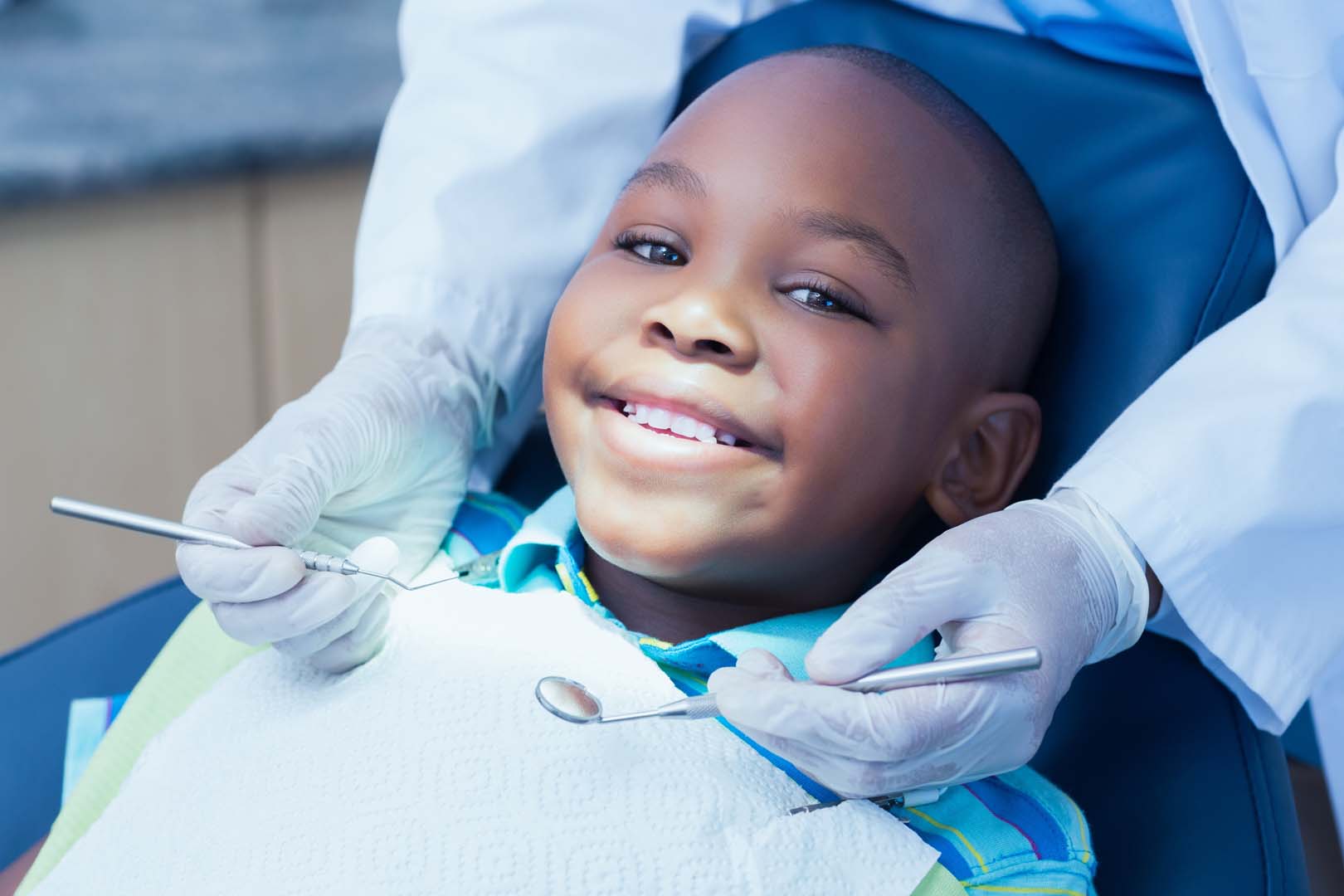Our Blog
Here, we share helpful tips, expert advice, and the latest updates on dental care to keep your smile healthy and bright. Whether you’re looking for oral hygiene tips, treatment insights, or news about our practice, you’ll find it all right here. Have questions or suggestions? Feel free to reach out—we’d love to hear from you!

Your Retainer Needs Care, And Here’s How To Do It!
It is time to celebrate! Your braces are off and your teeth are looking fantastic, but you’re not quite done yet. Dr. Gardner has custom made you a retainer that will be worn per his instructions.
Learn More
What is an Overbite and How is it Corrected?
Dr. Graham Gardner and Dr. Dana Tang are board-certified orthodontists. Aside from being your favorite doctors, this also means they have the training and expertise to diagnose, prevent and treat malocclusion, or a bad bite
Learn More
Top 8 Tips to Prepare Your Child for Braces or Invisalign ® Teen
So your child or teenager needs braces or Invisalign Teen treatment. Thankfully, today’s orthodontic treatment options are more comfortable, efficient and convenient than ever before
Learn More
Tips for Keeping Your Braces Shiny Clean!
With braces, it is more important than ever to keep your teeth and gums their healthiest. Getting braces requires adopting a new oral hygiene routine and developing good habits.
Learn More
The Ideal Bite
In dentistry, occlusion refers to how your teeth come together. It is more than just your bite, it includes the ways teeth come together when you are chewing, swallowing, and sleeping.
Learn More.webp)
Join us in welcoming Dr La Rochelle to our practice!
Gardner Orthodontics is excited to announce the addition of Dr. Natalie La Rochelle to our team! Dr. La Rochelle joins us from the West Coast, all the way from Napa, California.
Learn More
How Your Retainer Prevents Teeth Shifting After Braces or Invisalign
Once you have that stellar Gardner grin, it might seem like your orthodontic treatment is over. However, there are actually several stages of braces and Invisalign treatment, including the planning stage, the active stage and, finally, the retention stage.
Learn More
Dr. Julia Durham: A Finalist for Orthodontic Student of the Year for Journal of Clinical (JCO) 2015
Dr. Julia Durham, the newest addition to the Gardner Orthodontics team, was recently named a finalist for Orthodontic Student of the Year through the Journal of Clinical Orthodontics.
Learn More
Gardner Orthodontics Welcomes Dr. Julia Durham!!!!
Gardner Orthodontics is excited to announce that we have a new orthodontist joining the team. She is the talented, delightful Dr. Julia Durham. We are so grateful and thrilled that Dr. Durham will be joining us in June 2016.
Learn More
Extended Gaskins Road Hours at Gardner Orthodontics
Gardner Orthodontics is committed to providing the highest levels of service that you have come to expect. In keeping with these commitments, we are pleased to announce extended hours for our Gaskins Location.
Learn More
Dr. Gardner Wins Top 10 In National Invisalign Competition
Gardner Orthodontics is pleased and proud to announce that Dr. Graham Gardner has been nationally recognized for his outstanding work with Invisalign in a national Invisalign competition.
Learn More
10 Reasons Why You Should Consider to Get Invisalign® in Your 50s and Beyond
While nearly one in four orthodontic patients are adults in North America, at Gardner Orthodontics, almost half of our patients are adults with a large number between the ages of 50 and 70!
Learn More
The Relationship Between Asthma & Cavities
The headline of this blog post is pretty shocking isn’t it? Many people are unaware of the link between asthma and tooth decay resulting from a dry mouth.
Learn More
Why Do I Need To Wear Elastics?
Elastics, also known as rubber bands, are a very normal part of orthodontic treatment. However, we know that people sometimes find them to be a nuisance or difficult to adjust to wearing.
Learn More
October is National Orthodontic Health Month
For many of us, October can mean fall weather and the excitement of Halloween. However, for orthodontists, October is also a very special month because October is National Orthodontic Health Month.
Learn More
5 Home Care Hacks for Clear Aligners
At Gardner and La Rochelle Orthodontics, we do our best to remain available for orthodontic emergencies. Please call our office if you think you are experiencing an orthodontic emergency.
Learn More
Hey Runners! Pay Special Attention To Your Oral Health
We know that exercise is very important for both our mental and physical health. However, have you thought about the effects of running on your oral health? While those two things may seem unrelated, they’re actually not.
Learn More
5 Tips for Teaching Kids How to Brush
Good oral hygiene is a crucial part of a person’s health. Thus, it is imperative that parents help teach their kids not only to brush their teeth twice a day but also how to do so effectively.
Learn More
4 Surprising Foods that Can Cause Bad Breath
Everyone knows that garlic and onions are the usual culprits for bad breath. But do you know what other foods may be causing your stinky breath?
Learn More
3 Common Speech Problems Orthodontics Can Help
How we communicate through speech is a crucial part of our daily lives. Did you know that the alignment of your teeth can affect your speech? If you’re struggling with certain elements of speech, it could be attributed to your teeth.
Learn More
5 Ways Your Smile Changes As You Age
Getting older isn’t a favorite topic of conversation, but it is important to understand how the body changes as it ages so you can continue to live a happy and healthy life as you grow older.
Learn More
Some Pointers for Poking Wires
We know that having metal in your mouth doesn’t always feel like the most natural thing. Fortunately, after you get your braces on and have your initial adjustment, most people don’t even notice their braces are there.
Learn More
5 Reasons to Smile
There are a lot of reasons you should be flashing those pearly whites more often – smiling is good for your health! According to Psychology Today, when you smile you activate neural messaging that benefits your health and happiness.
Learn More
Are Your Braces Triggering Your Canker Sores?
A few weeks into orthodontic treatment, you notice a tingling or burning sensation in your mouth. A few days later, canker sores appear. Fortunately, canker sores are not often a serious issue, but they sure can be annoying!
Learn More
Surviving Date Night with Braces
Date night can be a nerve-wracking experience. From what to wear, where to go, what to talk about, the numerous variables of date night can wreak havoc on what should be a fun experience.
Learn More.jpg)
4 Tips to Keep Your Smile Healthy
Just like the rest of your body, your mouth and teeth need to be well-nourished and taken care of in order to keep your smile radiant.
Learn More
How to Satisfy Your Sweet Tooth in Braces
You’re in between meals and craving something sweet, but you just started orthodontic treatment and know that many of your favorite foods should now be avoided. Is there anything sweet you can eat?
Learn More
Wisdom Teeth After Braces, Explained
You’ve been patiently waiting for your orthodontic treatment to come to an end and your braces to come off. You followed all the oral hygiene instructions during and after treatment, but now your wisdom teeth are starting to come in. Will they ruin your new smile?
Learn More.jpg)
Do Your Gums Bleed When Flossing?
It’s the start of a new day and you’re going through the motions of your morning routine. As you begin flossing, you notice your gums start to bleed in some areas. Is this normal?
Learn More.jpg)
Orthodontic Treatment: One Phase Or Two?
Did you know that orthodontic treatment is not just for teens and adults? In fact, the American Association of Orthodontics (AAO) recommends that by the age of 7, children should have an initial orthodontic consultation.
Learn More
Are You Too Old For Braces?
When you think of braces, who do you picture wearing them? If you’re like most Americans, children and teens come to mind. If you’re unhappy with your smile, you probably think you missed your chance for straight teeth, but that couldn’t be further from the truth.
Learn More
ORTHODONTIST ACCEPTING SMILE DIRECT CLUB PATIENTS IN Richmond
Gardner and La Rochelle Orthodontics: Where Your Smile Journey Takes a Joyful Turn for the Better
Learn More
Is Juicing Bad for Your Teeth?
At the start of every new year, most of us begin to reevaluate our waistlines and opt for a healthier lifestyle. With the growing popularity of juicing in recent years, more of our patients have been turning to this diet as a means of increasing their fruit and vegetable intake.
Learn More
Diabetes and Orthodontics: What You Need to Know
Although diabetes has become a fairly common disease in recent years, it is still very serious and should be managed properly to avoid damaging effects to the body. These damaging effects include threats to your oral health that can greatly influence your orthodontic treatment.
Learn More
Common Speech Problems Orthodontics Can Help
Did you know that the alignment of your teeth can affect your speech? If you struggle to pronounce certain words, your teeth could be the reason why. Thankfully, orthodontics can help.
Learn More.jpg)
5 Ways to Eat Your Way To A Healthy Smile
All of us here at Gardner and La Rochelle Orthodontics have heard the expression “an ounce of prevention is worth a pound of cure”. Taking this to heart can make our teeth stronger and brighter if we eat the right foods to support that healthy smile.
Learn More
What to Expect From Your First Week of Braces
You’re getting your braces put on for the first time and you’re not sure what to expect. One thing is for sure; your oral hygiene practices will definitely change.
Learn More
Protect Your Braces While Playing Sports
Getting braces doesn’t mean giving up the sports you love! Luckily, braces will not keep you from any sport or physical activity. However, the price you pay for a beautiful smile is taking a little extra care of your mouth while undergoing orthodontic treatment.
Learn More
What To Ask At An Orthodontic Consultation
Orthodontic consultations are oftentimes a complimentary introduction for orthodontists, like Dr. Graham Gardner, Dr. Natalie La Rochelle, and Dr. Dana Tang, to get to know you and your oral health concerns.
Learn More
What is the Value of Orthodontic Treatment?
Did you know that orthodontic treatment is more than just straightening teeth? The American Association of Orthodontists (AAO) states, “The goal of orthodontic treatment is a beautiful smile and a good bite—meaning straight teeth that mesh well with the teeth in the opposite jaw and look great.”
Learn More
The Top 3 Best Drinks For Your Teeth
While it may seem like water is your only beverage option, fear not. There are a few drinks still available to quench your thirst without affecting your orthodontic treatment.
Learn More
Rubber Bands for Braces, Explained
Whether you’ve had orthodontic treatment or not, you’ve seen people wearing elastics or rubber bands as part of the process. But do you know what they’re used for?
Learn More
Custom vs. Store-bought Mouthguards
Anyone participating in a sport should wear a mouthguard to protect their teeth. This is especially important for anyone undergoing orthodontic treatment.
Learn More
Gag Reflex and Orthodontic Treatment
Having a sensitive gag reflex is nothing to be embarrassed about. Additionally, it is not something that should deter you from seeking orthodontic treatment.
Learn More
It’s More Than Cosmetics
We see plenty of folks who are simply looking to improve their smile. They may, perhaps, have a small gap between their incisors. Most people won’t even notice or care, but there it is, staring back at them every morning in the mirror.
Learn More
A Clean Smile is a Beautiful Smile
There are a host of reasons why someone might need braces: Their teeth are crowded; their teeth are spread too far apart; they have an overbite or underbite; they just want a more beautiful smile.
Learn More
Why Settle for Less?
We’re big fans of Panera. While it’s technically “fast food,” it’s pretty healthy and nourishing. Their salads are delicious and fresh, the soups are awesome, and, of course, the bread…
Learn More
A Beautiful Smile is Good for Your Brain
We can tell, you know. We’re trained professionals in creating beautiful smiles, and as such, we’ve done a bit of research. Did you know that animals can’t really smile, but they can laugh?
Learn More
The Team Approach
Each of our orthodontists are experts. Each of them went to a credentialed dental school, and then spent additional years in specialized orthodontic training.
Learn More
GLO IS GROWING!
If you’ve spent time in our offices, you may have noticed that we have a tight-knit team. We sort of consider ourselves to be part of a large, extended family.
Learn More
What to Ask During Your First Visit
If you’ve scheduled your free consultation with us, you’re already well on your way to achieving a new great smile.
Learn More
Do I Really Need Invisalign Rubber Bands?
At Gardner Orthodontics, we’re not just a leading Richmond, VA Invisalign provider, we’re among the top 1% of Invisalign providers in the country. This means we’ve helped thousands of patients perfect their smiles with clear aligners.
Learn More
Owen Goes Hi-Tech
Getting braces used to be quite the ordeal. The ancient Roman Aulus Celsus used to reach into people’s mouths and attempt to push their teeth into alignment.
Learn More
Everything You Should Know About Eating and Drinking With Invisalign
While most people are aware they need to take their aligners out before eating a meal, it isn’t always as clear when it comes to sipping on a drink or chewing gum with Invisalign.
Learn More
Dentist or Orthodontist?
Some friends of ours recently had their bathroom remodeled. It turned out beautifully. They hired a small private contractor based on a recommendation from a friend. His name is Ivan, and he specializes in tile work.
Learn More
Braces 101: 10 Common Braces Questions Answered
At Gardner Orthodontics, so many of our Richmond braces patients begin treatment in July and August before school starts back up again. If you just kicked off your own treatment or it’s on the agenda in the coming weeks, congrats!
Learn More
Accelerated Orthodontics with Invisalign
Straightening teeth takes time. Besides, the longer your braces are on, the higher likelihood your teeth have of decalcification, gingival recession, and root resorption. This is where the idea of accelerated orthodontics comes into play.
Learn More
Am I too Old for Braces?
For a long time, braces were considered a teenage rite of passage. Plus, when you think about the braces of even a few decades ago, bulky, shiny metal brackets are probably what come to mind. It’s no wonder that our adult patients often ask us, “Am I too old for braces?” The answer is, absolutely not!
Learn MoreContact Us
Ready to transform your smile? Call today or visit one of our convenient locations:


Schedule Your Visit
Ready to begin your journey to a healthier, more confident smile?
Contact Gardner & La Rochelle Orthodontics today.

